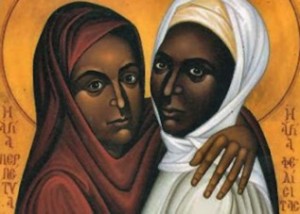“The king of Egypt spoke to the Hebrew midwives, one of whom was named Shiphrah and the other Puah, saying, ‘When you deliver the Hebrew women, look at the birthstool: if it is a boy, kill him; if it is a girl, let her live.’ The midwives, fearing God, did not do as the king of Egypt had told them; they let the boys live.” (Exodus 1:15-17)
Disturbed by the proliferation of the Hebrew people he had enslaved, the unnamed Pharaoh directed two named women to carry out a gendered genocide. By leaving him anonymous, the writer signals that the king is powerless and does not deserve to be named. As we shall see, the “midwives alone earn themselves a name by their conduct” (Siebert-Hommes, Let, pp. 113). Not only have Puah and Shiphrah been remembered throughout the generations, but the fact that they are actually named may indicate that they were national figures within Egyptian society. Continue reading Shiphrah & Puah: The Midwives who Delivered Israel







